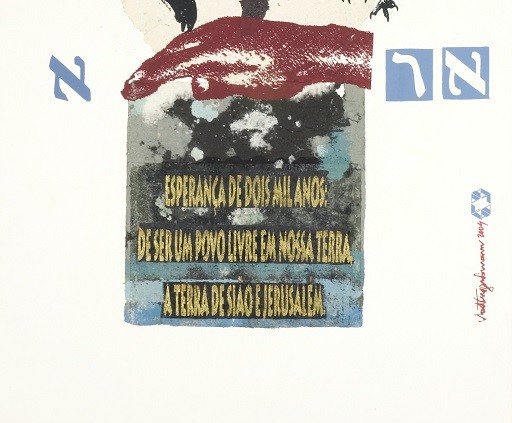Food and Memory in Lili Jaffe’s diary
DOI:
https://doi.org/10.35699/1982-3053.2023.47982Keywords:
Lili Jaffe, Testimonial literature, FoodAbstract
This article discusses, in the book O que os cegos estão sonhando? (2021) (What are the blind dreaming of?), representations of food in the activation of memory and in the preservation of emotional bonds despite the trauma. With the core being Lili Jaffe's diary (1926-2020) written after her imprisonment in Auschwitz, the book also symbolizes the encounter between generations, including texts from her daughter, Noemi Jaffe, and her granddaughter, Leda Cartum. In the diary, the survivor describes hunger and the poor quality of the “ration” distributed to the prisoners, as well as her work in the Auschwitz kitchen, where food, exchanged for clothing or smuggled to hungry Jews establishes relationships of camaraderie and subversion. Dietary difficulties change dramatically after the liberation of the prisoners. In their status as war exiles, Lili and her “camp sisters”2 are presented with all sorts of candy in European cities, which they can eat until they feel nauseated. Whether in deprivation or excess, food is crafted both as a trigger for the creation of language and as a cultural asset, transcending political oppressions, the struggle for survival, differences and cultural affiliations. Ultimately, in its preparation and sharing, it takes shape as a way to keep Jewish commensality alive.
Downloads
References
BENJAMIN, Walter. Imagens do pensamento. In: ______. Rua de mão única. 4. ed. Tradução: Rubens Rodrigues Torres Filho; José Carlos Martins Barbosa. São Paulo: Brasiliense, 1994. p. 143-277. (Obras Escolhidas II).
BUNN, Daniela. O alimento da literatura: uma questão cultural. São Paulo: Rafael Copetti Editor, 2016.
MONTANARI, Massimo. Sistemas alimentares e modelos de civilização. In: FLANDRIN, Jean-Louis; MONTANARI, Massimo (Orgs.). História da alimentação. Tradução: Luciano Vieira Machado; Guilherme J. F. Teixeira. São Paulo: Estação Liberdade, 1998. p. 108-120.
GOLDHAGEN, Daniel Jonah. Os carrascos voluntários de Hitler: o povo alemão e o Holocausto. Tradução: Luís Sérgio Roizman. São Paulo: Companhia das Letras, 1997.
JAFFE, Noemi. O que os cegos estão sonhando?: com o Diário de Lili Jaffe (1944-1945) e texto final de Leda Cartum. Tradução do Diário de Lili Jaffe: Aleksandar Jovanović. São Paulo: Editora 34, 2012.
LEVI, Primo. Os afogados e os sobreviventes: os delitos, os castigos, as penas e as impunidades. 2. ed. Tradução: Luiz Sérgio Henriques. São Paulo: Paz e Terra, 2004.
QUEIROZ, Maria José de. A literatura e o gozo impuro da comida. Rio de Janeiro: Topbooks, 1994.
SAIDEL, Rochelle G. As judias do Campo de Concentração de Ravensbrück. Tradução: Antonio de Pádua Danesi. São Paulo: Editora da Universidade de São Paulo, 2009.
SELIGMANN-SILVA, Márcio. Reflexões sobre a memória, a história e o esquecimento. In: SELIGMANN-SILVA, Márcio (Org.). História, memória, literatura: o testemunho na Era das Catástrofes. Campinas: Editora da Unicamp, 2003. p. 59-88.
Downloads
Published
How to Cite
Issue
Section
License
Copyright (c) 2023 Arquivo Maaravi: Revista Digital de Estudos Judaicos da UFMG

This work is licensed under a Creative Commons Attribution 4.0 International License.
Os direitos autorais pertencem exclusivamente aos autores. Os direitos de licenciamento utilizados pelo periódico é a licença Creative Commons Attribution 4.0 (CC BY 4.0): são permitidos o compartilhamento (cópia e distribuição do material em qualquer meio ou formato) e adaptação (remix, transformação e criação de material a partir do conteúdo assim licenciado para quaisquer fins, inclusive comerciais.






